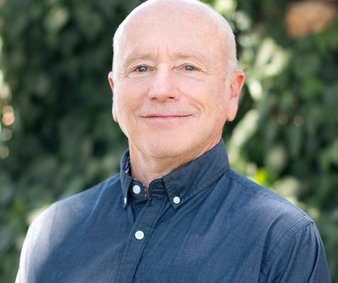Hospital administrators are used to the ever-changing climate of healthcare. New technology, standards of care and diverse populations keep hospitals always looking for ways to improve their services. The Patient Care and Affordable Care Act of 2010, however, puts healthcare in a whole new ballgame.
“We’re making history here,” said Emanuel Medical Center President and CEO John Sigsbury. “There hasn’t been this much change in healthcare since the 1960s when Medicare and Medicaid were created.”
Sigsbury hasn’t just been preparing Turlock’s local hospital for the changes brought on by the healthcare reform act; he also serves as chair of the Hospital Council of Northern and Central California and as an executive board member on the California Hospital Association. The challenges Emanuel faces in the coming years as the mandates for the new laws take effect are the same being felt around the region, state and country.
“(The Patient Care and Affordable Care Act) has created an enormous atmosphere of uncertainty in the industry,” Sigsbury said.
The law will significantly affect hospital funding and reimbursement. The insurance coverage requirement will expand healthcare coverage to 30 million currently uninsured Americans, and require many health insurance plans to cover prevention and wellness benefits with no co-pay or deductibles for 54 million Americans that have private insurance.
While the health insurance requirement — that is mandated by 2014 — appears to increase the reimbursement that hospitals will receive, Sigsbury said that in Stanislaus County the high unemployment rate (17.4 percent for March) will result in thousands of new Medicaid patients, and the state Medicaid reimbursement rates are a percentage of the actual costs of delivering care.
Another concern is the ability of existing healthcare systems to serve a sudden influx in patients.
“We may create as many as 10,000 new Medical (California’s Medicaid program) patients who will not only demand, but need care. The county is unprepared,” Sigsbury said.
Emanuel has been working with a coalition of providers in the county, including hospitals, physician groups, and clinics to determine how best to meet the needs of the community.
“In the ER (emergency room) alone, it could be very detrimental to us being able to meet the needs of the community. It could overwhelm our resources,” Sigsbury said.
A change in funding is not the most radical of part of the healthcare act. The act puts hospitals in a completely new business model — pay for performance.
“The emphasis will move from selling the patient another ER visit to improving the patient’s health status. It’s a new challenge for all of us; a new level of integration with pharmacies, physicians, home care, etc. There will be case managers who follow patients to make sure they’re taking their meds, doing their exercises, and going to healthcare provider visits as scheduled,” Sigsbury said.
There are also incentives in the healthcare act for physicians to reduce hospital admissions, and penalties for hospitals with excessive readmission rates and hospital-acquired conditions. These measures are meant to drastically reduce the number of patients served by a hospital and instead put the focus on physician care.
The healthcare act also implements new administrative mandates for hospitals that will increase transparency of actual costs, financial relationships between hospitals and other providers and requires nonprofit hospitals to conduct a community needs assessment every three years.
A decrease in hospital readmission and better transparency are good for the patient, but costly for hospitals.
“None of us believe any of these things will mean more revenue for hospitals; it will mean less,” Sigsbury said.
The costs incurred by implementing the Patient Care and Affordable Care Act are prompting hospitals to look at new partnerships — including Emanuel Medical Center.
“The board is looking at every kind of strategy moving forward, and looking at new partnerships,” said Sigsbury.
Sigsbury said the hospital’s board of directors is looking at creating partnerships like Emanuel has with Stanford to provide advanced radiation therapy at Emanuel’s oncology center and with Children’s Hospital Central California to provide pediatric hospitalists at Emanuel 24 hours a day.
Changes in partnerships or sponsors (Emanuel is currently a ministry of the Evangelical Covenant Church) could be on the horizon, although rumors of an imminent sale are unfounded, said Sigsbury.
He said that Emanuel is proud to be a large economic engine in Turlock — employing 1,500 people in a town of 70,000.
“It’s important to be transparent and sustainable. In the end, we want our employees to come to work without worrying about their job and be able to count on their paycheck,” Sigsbury said.
Moving forward
Despite the drastic changes involved in the healthcare act and its uncertain future — the act is currently under review by the Supreme Court — Emanuel Medical Center is moving forward with its mission to provide high quality and comprehensive health services for the community.
On Monday, Emanuel Medical Center announced that it joined Spirit of Women, an integrated partnership of hospitals and healthcare systems across the country that aim to motivate healthy action for women and their families.
As a Spirit of Women hospital, Emanuel will host a wide variety of programs that include major women’s health educational presentations with nationally-recognized speakers, community wellness events and other creative women’s health outreach activities. Education and community outreach will address topics such as menopause, cancer, joint pain, diabetes, heart disease, healthy pregnancy and many more.
“Joining Spirit of Women gives Emanuel access to some outstanding programs and educational resources that can help women take better care of their health and make more informed health care decisions,” said Dr. Kathleen Kearns, a family practitioner and Emanuel’s chief of staff. “Women make up to 85 percent of household health care decisions, so educational programs for women can improve the health of the entire community.”
Emanuel is also preparing to break ground on construction of two new operating rooms. The cardiac operating suites will combine a surgical suite with an interventional radiology scanner and will allow Emanuel doctors to treat two emergency patients at once.
This is the newest advance in Emanuel’s effort to expand its cardiac care. Emanuel’s Cardiovascular Services Department opened in April 2010 and the first open heart surgery performed there occurred in May 2011. Emanuel has performed 35 open heart surgeries since then, and hundreds of cardiac interventions.
“In an unknown future… you just can’t stop planning and meeting the needs of the community,” Sigsbury said. “We’ve been here for 95 years; we’d like to be here another 95 years.”









